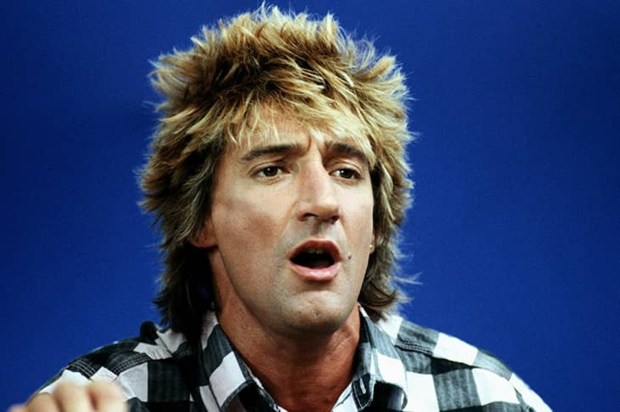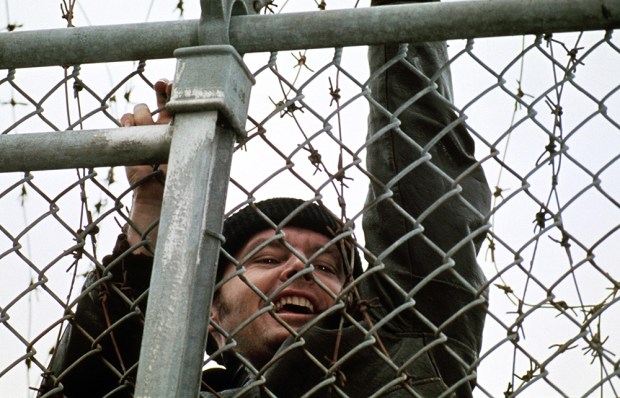My mother has various chronic illnesses and finds it almost impossible to remain both immobile and awake during the day. At night she can’t sleep owing to hallucinations caused by her Parkinson’s medication. I think she is also subject to a general delusion that the house is overrun with mice. There is hardly a drawer or cupboard without a wizened lump of cheese set in a trap. Otherwise, she is sane and serene and while her forgetfulness is infuriating to her, its origin doesn’t seem to be organic. She’s 87. I’ve been staying with her for the past few days.
Also visiting is my mother’s sister, aged 91. Apart from her deafness and a bad foot necessitating sticks, push trolleys and an electric cart for mobility, she’s right as rain. Resolutely unintellectual previously, she has lately become passionately interested in geopolitics and watches Russia Today, CNN and Al Jazeera round the clock. As a result she is probably better informed about world affairs than, say, Boris, who has presumably to rely solely on the expertise of an ethically minded Foreign Office for his information. At the moment she is closely monitoring the activities of al-Qaeda in the Sahel.
My mother and her sister are untroubled by ambiguity. Everything is as black and white as it was during the war when the Nazis were dropping bombs and firing rockets at them. Dinner table conversation consists of raising a topic and pronouncing whether it is a good thing or a bad thing. Boris. Tesco’s. The sale rail at the Edinburgh Woollen Mill. Lidl’s in-store bread. The BBC. Yorkshire tea. Regional accents. It is refreshing at first. The difficulty is that when passing judgment, the noun of a sentence often eludes them. When this happens to my mother’s forthright, deaf, elder sister, she pauses diffidently while I and my mother offer suggestions until one of us lights on the right word and she can move on.
We are discussing supermarkets, those houses of wonder, after lunch at the kitchen table. ‘When I go shopping in the supermarket, I don’t trust, er…’ says my mother’s sister. She’s stumped for the word. ‘Men?’ I say. ‘Sell-by dates?’ offers my mother. ‘Three-for-two offers?’ I say. The word she is looking for turns out to be ‘organic’, as in ‘organic labels’. Now that we’ve ascertained the object of her mistrust, she can elaborate. ‘Especially if the product is made in Italy. I don’t think the, er…’ Another elusive noun. ‘Mafia?’ ‘Olive oil?’ ‘Romans?’ The word she is looking for, we discover eventually, is ‘farmers’. She doesn’t think Italian farmers are as scrupulous about observing the restrictions imposed on organic food production as we are ‘over here’.
Somehow the subject of the conversation changes seamlessly from organic food to electrical appliances, another abiding source of wonder. My aunt won’t have anything electrical within a yard of her bed, she says. ‘I don’t even have an, er…’ ‘Electric blanket?’ I suggest. ‘Tilley lamp?’ I run through a list of bedroom electrical appliances but draw a blank, so look to my mother to help with more suggestions. Her chin is resting gently on her chest. She’s nodded off. ‘What’s the word? It’s right on the tip of my, er…’ says my mother’s sister, unconcerned that her audience has suddenly halved. ‘Tongue?’ I suggest. The electrical appliance is pinned down finally to that amazing recent technological innovation the clock radio. She has heard that electrical appliances close to the bed emit a sleep-inhibiting, brain-damaging magnetic force field. She heard it on a science programme on Russia Today, I imagine, about the causes of gender fluidity in the west.
She’s also worried about China, she says. She’s worried about its creeping expansionism throughout the world, particularly its new missile base in the Spratly Islands. I tell her I have a friend who has a friend who legally owns the most contested of the Spratly Islands. He’s Irish, I say. ‘Irish?’ she says with frank amazement: amazement that he’s Irish; amazement that here is a fine detail about this potential nuclear flashpoint that even she didn’t know about; amazement that she had to hear about it first from a cretin like me.
‘Who’s Irish?’ says my mother, regaining consciousness. ‘The legal owner of the Spratly Islands,’ says her sister. ‘Didn’t we go there on holiday once?’ says my mother. ‘In a caravan?’ ‘Unlikely,’ says my mother’s sister. ‘They’re in the South China Sea.’ ‘Oh,’ says my mother. Then she laughs. My mother has what evangelical Christians call ‘a heart’ for China. In her early twenties, inspired by the fruitful missionary work of the great Hudson Taylor, she trained to be a nurse with the intention of becoming a missionary in China. Mum stares serenely at her empty plate. I’m guessing that she is thinking without rancour about how her life might have turned out quite differently from the one she had.
Got something to add? Join the discussion and comment below.
Get 10 issues for just $10
Subscribe to The Spectator Australia today for the next 10 magazine issues, plus full online access, for just $10.
You might disagree with half of it, but you’ll enjoy reading all of it. Try your first month for free, then just $2 a week for the remainder of your first year.















Comments
Don't miss out
Join the conversation with other Spectator Australia readers. Subscribe to leave a comment.
SUBSCRIBEAlready a subscriber? Log in